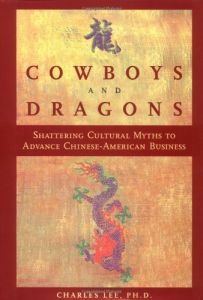Join getAbstract to access the summary!

Join getAbstract to access the summary!
Charles Lee
Cowboys and Dragons
Shattering Cultural Myths to Advance Chinese-American Business
Kaplan Publishing, 2003
What's inside?
Your Chinese contact thinks you are loud, greedy and rude, and he hasn’t met you yet. Here’s how to beat the stereotype.
Recommendation
Explaining China is a favorite avocation of many Chinese in the West. They usually state that Chinese and Western values are opposed, and that Chinese values are not only different but superior. This fairly typical book can be straightforward and informative, particularly when the author discusses the decision-making process in China and warns that ’yes’ and ’no’ probably don’t mean what the average, unsubtle American understands them to mean. But stay skeptical of the author’s generalizations about Chinese (Dragon) and Western (Cowboy) motivations. He stresses the supposed "collective" disposition of Chinese, but anyone with China experience will wonder just how "collective" the Chinese really are. In an often-used saying, the Chinese compare themselves to grains of sand - to emphasize their difficulty in getting together and cooperating. Sometimes the book describes fact, and sometimes fantasy that Chinese wish were fact. It can be as useful to know a people’s fantasies as it is to know their facts so, properly read, getAbstract.com finds this book to be a useful addition to the bibliography on doing business in China. (There are, by the way, some annoying proofreading errors, most egregiously the erroneous pinyin spelling of the Chinese word for face.)
Summary
About the Author
Charles Lee is the founder of Charles Lee Enterprises, a venture capital firm. He has earned two master’s degrees and a doctorate since coming to the United States in 1963. Lee is a naturalized American citizen and has extensive experience in Asian-American business.


















Comment on this summary